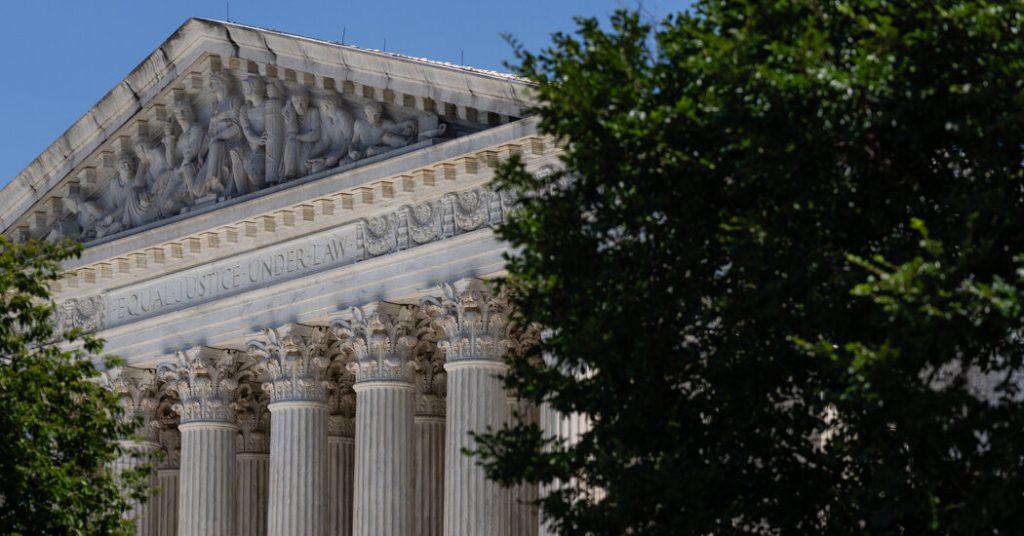The Supreme Court has agreed to consider a Tennessee law that prohibits certain medical treatments for transgender minors, marking the first time the justices will rule on the constitutionality of statewide bans of this nature. This decision could have significant ramifications for approximately 25 states that have implemented similar measures aimed at curtailing transgender rights. The case, United States v. Skrmetti, will be heard in the court’s next term, with no date set yet for oral arguments. The Biden administration and legal advocacy groups representing transgender youths have urged the court to intervene, arguing that the ban violates the equal protection clause of the 14th Amendment.
The Tennessee law prohibits three types of transgender medical care for minors, including puberty blockers, cross-sex hormones, and gender-transition surgeries. The attorney general for Tennessee, Jonathan Skrmetti, argues that the rise in the number of minors receiving diagnoses and medical treatment for gender dysphoria prompted the state and others to respond with these laws. He states that the bans were enacted to prevent potentially irreversible sex-transition interventions with uncertain benefits from being performed on minors who may not fully understand the consequences and risks involved. The Biden administration disputes this, stating that such treatments are rare and are only recommended in appropriate cases after thorough assessment.
Many American medical groups endorse youth gender treatments as evidence-based and necessary, countering arguments that such treatments pose significant health risks. Lambda Legal, one of the groups challenging the Tennessee ban, is cautiously optimistic that the court will hear the case and ultimately reject the discriminatory law restricting gender-affirming care for transgender youth and their families. The case is seen as an opportunity for the court to provide clarity on whether the Constitution contains special protections for gender identity and transgender individuals.
The Supreme Court’s decision to take up this case comes as the justices have yet to rule on major issues for the current term, including emergency abortion care, disinformation on social media, and the scope of presidential power. The court’s shift rightward in recent years, with the appointment of Justice Amy Coney Barrett, has heightened tensions around social issues like transgender rights. While the court had mostly refrained from intervening in transgender rights issues previously, it has now agreed to consider the Tennessee law, signaling a willingness to address this polarizing topic that affects the lives of many transgender youth and their families.
Transgender young people, their families, and doctors have emphasized the importance of medical care in relieving gender distress and dysphoria experienced by many transgender minors. International comparisons show that while some European countries have recently restricted hormone treatments for children, none have imposed outright bans as seen in certain U.S. states like Tennessee. The split among federal courts on laws targeting transition care has intensified the pressure on the Supreme Court to address these issues, and the upcoming case will test the court’s stance on transgender rights.
The Tennessee case involves legal challenges brought by several advocacy organizations, including the ACLU and Lambda Legal, on behalf of families with transgender children and a doctor who specializes in transgender health care. The plaintiffs argue that the ban on transgender medical care for minors violates their constitutional rights and places transgender youth at risk. The case highlights the importance of access to gender-affirming care for transgender youth and raises questions about whether laws like the one in Tennessee are discriminatory and harmful. The Supreme Court’s decision to review this case will have far-reaching implications for transgender rights and healthcare in the United States.


